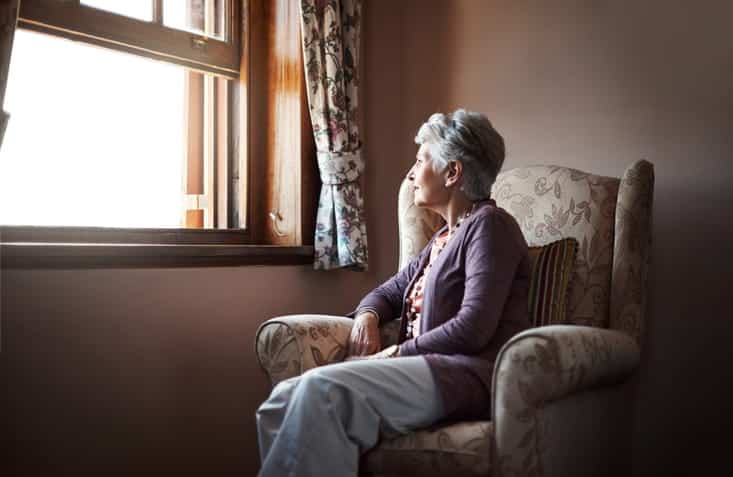According to the Centers for Disease Control, approximately 1.3 million seniors in the U.S. were living in a licensed nursing facility in 2020. The assisted living facility industry is expected to serve an ever-increasing number of people in the next two decades.

Losing personal independence is one of the most difficult challenges seniors must learn to cope with. However, moving into an assisted living facility doesn’t mean the end of independence. For many seniors, the safety of a senior care home can lead to new opportunities for enjoying life.
What Does It Mean for an Adult to Lose Independence?
The loss of independence means a person can no longer manage day-to-day tasks, like preparing meals or bathing alone.
Adults who have been accustomed to doing things on their own — and, in many cases, taking care of others — can become frustrated and depressed at the idea of needing help. A loss of independence may also mean a loss of confidence and self-worth.
How Does Losing Independence Affect Seniors?
The “golden years” are a time when older adults must face many losses. Coping with losing family members and lifelong friends is an inevitable part of aging. Moving out of the home where you raised a family and made so many happy memories can also be painful.
You or your loved one may feel a wide variety of emotions at the loss of independence, including:
- Anger
- Betrayal
- Grief
- Denial
- Frustration
- Sadness
- Vulnerability
- Guilt
- Resentment
- Confusion
All of these feelings are normal. As with all forms of grief, feelings may come and go and don’t necessarily follow a pattern. Adjusting to a new living situation may take time, but the negative feelings will pass.
Once seniors begin enjoying the benefits of living in a skilled nursing facility or assisted living home, they can embrace the changes and adjust to this new stage in life.
Tips for Dealing With the Loss of Independence
Whether you or your loved one feels angry, sad, confused, or any of the typical emotions associated with the loss of independence in seniors, the steps for coping with loss are the same.
Take Care of Your Health
Don’t let changes in your environment or independence level cause you to endanger your physical or emotional health. Follow a healthy diet and sleep schedule. Stay active with exercise and movement that’s appropriate for your fitness level. Taking care of your physical health will help you maintain the energy needed for coping with change.
If you are feeling depressed, reach out to a mental health professional. Many seniors are hesitant to ask for help, but protecting your mental health is as important as protecting your physical health. Talking to a therapist or joining a support group for seniors may help you adapt to changes more easily.
Accept Help When Needed
Whether your mobility has decreased or you are having memory problems, once you are no longer safe to live at home alone, something must change. Perhaps the addition of some adaptive devices in your home will be enough to help maintain independent living for a while. Or maybe it’s time to tour some senior care facilities in your area.
Everyone needs help at some time in life. Accepting the reality that you need some level of assistance doesn’t mean your life no longer has value. It simply means some changes must be made for you to continue enjoying a high quality of life.
Acknowledge Your Feelings (but Don’t Get Stuck in Them)
Talk to your loved ones about how you’re feeling. They are probably feeling many of the same things. It’s never a good idea to dwell on negative feelings, but acknowledging them can help you move forward. Remember, whatever emotions you are experiencing about the loss of your independence are completely normal.
Stay Connected With Friends
One way to foster senior independence is to stay connected with people from your neighborhood. Make sure to get contact information from your friends if you don’t already have it. A weekly phone call or video chat can go a long way to keep morale high.
Making connections in your new home can go a long way to bolstering your mood and helping you maintain a sense of independence. Joining a club, taking a class, or volunteering are great ways to meet new friends.
Focus on the Positive
Whether moving to a senior care facility is best for you or not, focusing on the positive will help you cope with the natural changes of aging. The Mayo Clinic reports that positive thinking has an overall positive effect on health and can help you practice better coping skills during times of stress.
Focusing on the positive doesn’t mean you should ignore feelings of sadness or anger. Positive thinking means that when you face a problem, you acknowledge any unpleasantness but stay focused on the good things in life.
Are You Considering an Assisted Living Facility?

Moving to a senior care facility doesn’t have to mean a complete loss of independence for seniors. Many seniors find that without the responsibilities of home maintenance, they can enjoy the hobbies and activities they always wanted to try.
If you’re searching for a “senior care facility near me,” contact Haven Health today. Haven Health offers personalized care and services in a warm and safe environment.